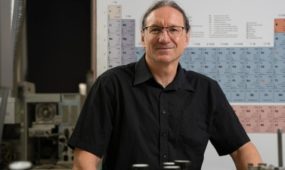Mass program takes wellbeing to the next level
Education
WELLBEING and resilience have become buzzwords in education however an Australian state is taking it to the next level by formulating a system-wide approach that can be used across an entire state or nation.

Sign up to receive notifications about new stories in this category.
Thank you for subscribing to story notifications.
South Australia is running large-scale programs to improve people’s psychological health at all stages of life, from school students to workers and the elderly.
Led by the South Australian Health and Medical Research Institute and the Department of Education and Childhood Development (DECD), the South Australian programs are being developed and exported across the world.
Last month the Government of Dubai in the United Arab Emirates commissioned DECD to use this expertise to conduct a wellbeing survey of 70,000 students.
The student census will continue over a five-year period for children in the last two years of primary (grades 5 and 6) and the first two years of secondary (grades 7 and 8) at all private schools.
It follows a similar state-wide program rolled out in South Australia in 2013, which now involves about 45,000 students a year.
The notion of “positive education” is not new but has previously been developed at a school level whereas the South Australian program takes a whole-of-state approach.
DECD Business Intelligence Director David Engelhardt said his department was also in talks about wellbeing projects in other countries including Northern Ireland and Slovenia.
“There is a huge interest internationally in positive education and the science is promising but young,” he said
“What we’ve done is scaled this up to a system level so it can operate across entire education systems rather than just individual schools.”
The wide-ranging census covers areas from school to nutrition, sleep, connectedness to family and peers, exposure to bullying, social engagement and out of school activities.
Results are then used to shape curriculums that build psychological health among students.
For example, Engelhardt said that by linking wellbeing data with academic results they found students with low perseverance levels tended to perform poorly in literacy and numeracy.
“That then enables us to look towards interventions that we can adopt early in life to improve children’s ability to stick at a task,” he said.
The global cost of mental health conditions was estimated at more than US$2 trillion in 2010. It is projected to increase to over US$6 trillion in 2030.
“The evidence is pretty clear that building resilience early in life is one of the most promising strategies to be able to respond to that,” Engelhardt said.
“This notion of building that through the education system is compelling.”
The South Australian Health and Medical Research Institute established its Wellbeing and Resilience Centre in 2014 on the recommendation of positive psychology expert and former Adelaide Thinker in Residence Professor Martin Seligman.
Since then, the centre has grown from a staff of two to 14 as it looks at ways to measure wellbeing and resilience at a state-wide level and use the data to improve the psychological health of the population.
Director Gabrielle Kelly said while building wellbeing and resilience had been recognised as important for some time, methods of measuring its success – particularly at a mass level in a democratic state – were relatively unknown.
She said developing these skills while people were healthy rather than using them as therapy when they became mentally ill also made sense.
“We are building the wellbeing of our state across all ages to learn more about how to do it at scale as a prototype for the world,” Kelly said.
“There’s a great deal of interest in what we’re doing in Mexico, China, Dubai, England and we are attracting quite a lot of attention.”
The Wellbeing and Resilience Centre used Prof Seligman’s PERMA (Positive emotion, Engagement, Relationships, Meaning, Accomplishment) dashboard to define wellbeing and resilience and then added physical activity, nutrition, sleep and optimism to create PERMA+. It also delivers TechWerks Resilience Training in South Australia, a program initially developed for the US Army.
The tools were used to measure wellbeing and deliver training to 200 manufacturing workers who know they will soon lose their jobs, prison staff and inmates, and older South Australians looking to the final stage of their lives after retiring from work.
“Often when people talk about mental health they are really talking about mental illness – there is an important distinction,” Kelly said.
“We are talking about building mental health – psychological assets to help people be stronger and help them live better lives.
“We are one of the first to do it at this scale and that’s why everyone is paying attention.”
Jump to next article



